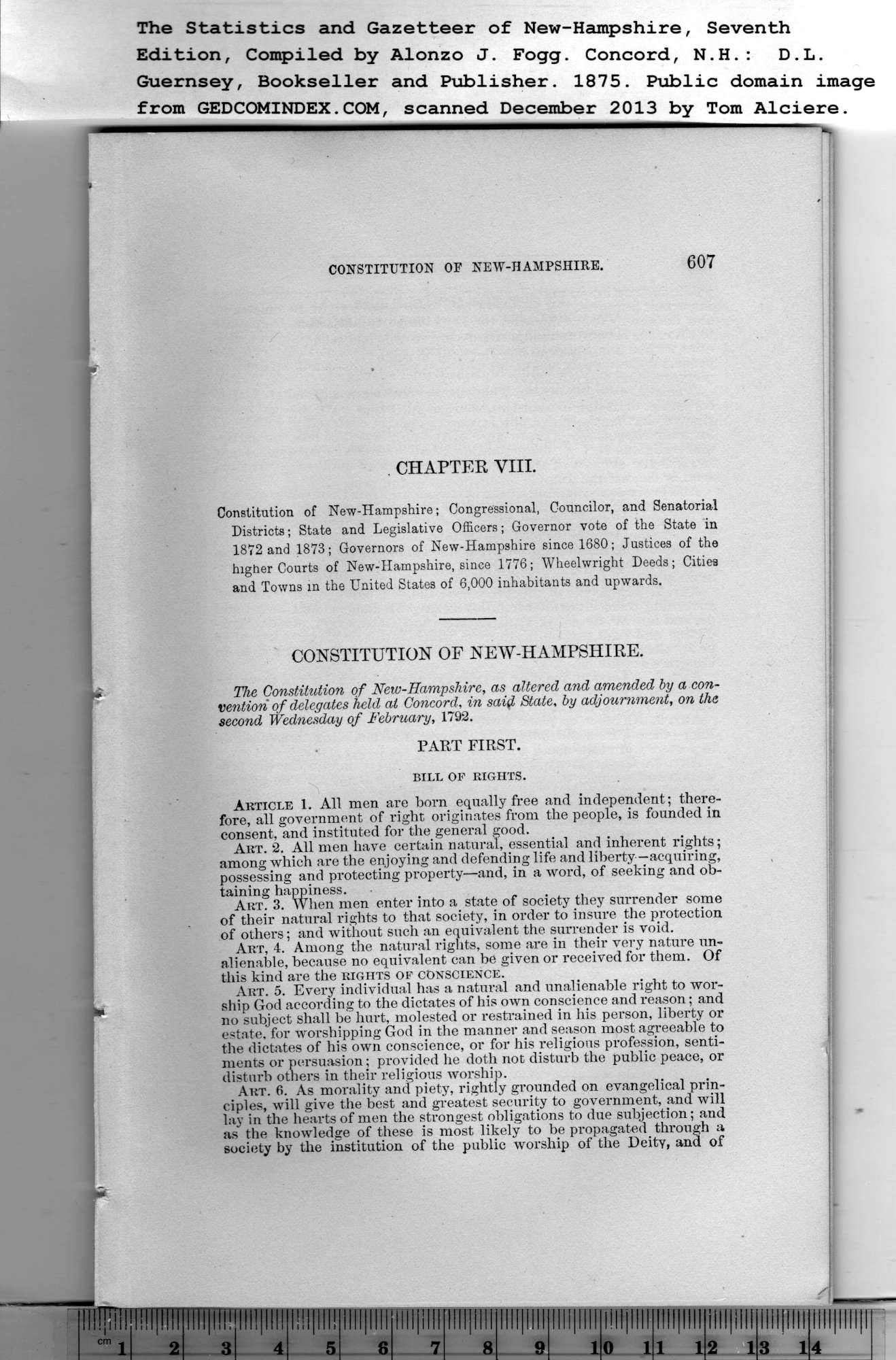|
CONSTITUTION OF NEW-HAMPSHIRE. 607
. CHAPTER VIII.
Constitution of New-Hampshire; Congressional, Councilor, and Senatorial
Districts; State and Legislative Officers; Governor vote of the State in
1872 and 1873; Governors of New-Hampshire since 1680; Justices of the
higher Courts of New-Hampshire, since 1776; Wheelwright Deeds; Cities
and Towns in the United States of 6,000 inhabitants and upwards.
CONSTITUTION OF NEW-HAMPSHIRE.
j£. The Constitution of New-Hampshire, as altered and amended by a con-
vention: of delegates held at Concord, in said State, by adjournment, on the
second Wednesday of February, 1792.
PART FIRST.
BILL OF RIGHTS.
Article 1. All men are born equally free and independent; there-
fore, all government of right originates from the people, is founded in
consent, and instituted for the general "ood.
Art. 2. All men have certain natural, essential and inherent rights;
among which are the enjoying and defending life and liberty —acquiring,
possessing and protecting property—and, in a word, of seeking and ob-
taining happiness.
Art. 3. When men enter into a state of society they surrender some
of their natural rights to that society, in order to insure the protection
of others; and without such an equivalent the surrender is void.
Art, 4. Among the natural rights, some are in their very nature un-
alienable, because no equivalent can be given or received for them. Of
this kind are the rights of conscience.
Art. 5. Every individual has a natural and unalienable right to wor-
ship God according to the dictates of his own conscience and reason; and
no subject shall be hurt, molested or restrained in his person, liberty or
estate, for worshipping God in the manner and season most agreeable to
the dictates of his own conscience, or for his religious profession, senti-
ments or persuasion; provided he doth not disturb the public peace, or
disturb others in their religious worship.
Art. 6. As morality and piety, rightly gi’ounded on evangelical prin-
ciples, will give the best and greatest security to government, and will
lay in the hearts of men the strongest obligations to due subjection; and
as the knowledge of these is most likely to be propagated_ through a
society by the institution of the public worship of the Deity, and of
PREVIOUS PAGE ... NEXT PAGE
This page was written in HTML using a program written in Python 3.2
| 